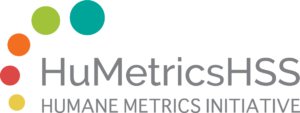History
During the 2016 Triangle Scholarly Communication Institute (SCI), we sketched a preliminary set of core values for enriching scholarship, highlighting five: Equity, Openness, Collegiality, Quality, Community.
Our short-term goal was to identify values broad enough to encompass a variety of scholarly practices that we might develop into a framework that could be used to improve the impact of scholarship by reimagining the rubrics we use to assess it.
Long-term goals of this initiative were then — and remain now — to identify the practices that embody these scholarly values and to articulate the manner in which these values can be shown to advance scholarship in humanities and social science (HSS) disciplines.
At every workshop we've held and at every venue where we have presented our work, one thing has become clear: values-based conversations have transformative power. Such self-reflective and intentional conversations enable us to begin to weave shared values into the fabric of our institutions. Again and again, our workshop participants have told us that the process of articulating, negotiating, and working through values with people that do not necessarily share them has been crucial to (a) creating a community of trust, (b) developing a sense of ownership of the process, and (c) cultivating a shared commitment to putting core values into practice when creating and curating knowledge.
When individuals come together to identify shared values through structured conversations, those values come to anchor our work and begin to orient us toward our highest aspirations.
A key aim thus far has been to facilitate the recognition of forms of knowledge creation beyond what can be captured by indicators focused solely on end-products like the article and the book. Scholarly activities such as those we examined in the syllabus and in annotations (and many more, such as mentoring, conference organizing, or the building of datasets or tools to make datasets useable) need to be evaluated as integral and valuable parts of scholarly life.
HuMetricsHSS Phase One
The first phase of HuMetricsHSS work (July 2017 – December 2018) directly engaged more than 80 participants at our workshops and countless others through conference appearances, individual conversations, and an episode of Michigan State’s the Liberal Arts Endeavor Podcast (Season 2, Episode 9). The infographic describing our values framework has been downloaded several thousand times from Humanities Commons. It is clear that our work responds to a deep and recognized need among a wide variety of stakeholders in the academy.
HuMetricsHSS Phase Two
The second phase of work (July 2019 – December 2020), looked to build on the work we've done to date to provide tools for others to use for self-reflection, to run their own workshops, to undertake campus- and community-wide conversations, and so on. This website was redesigned in July 2020 to emphasize these priorities.
Phase two was full of activity. Our blog post "What We've Been Up To" has the detail, but some highlights are:
- Our article, The Transformative Power of Values-Enacted Scholarship, was published in Nature and expands more on our philosophy and argument for rethinking the academy from the ground up;
- Our new (beta-version) Values-Sorter tool allows you to consider how values you care about might manifest in different kinds of academic work;
- Two sections of our Workshop Guide are now live and downloadable so you can run your own team/department through our process and card-sorting exercises;
- Our Zotero library is reorganized and newly tagged for ease of access, and contains thousands of relevant titles.
HuMetricsHSS Phase Three
Phase three has kicked off with a generous $650,000 grant from The Mellon Foundation. This supports not only the inaugural HuMetricsHSS Community Fellowship, but also a full build out of our Values Sorter tool and the Workshop Kit. There is much more to come, so we invite you to join our mailing list (see our website footer) to keep in touch.
In February 2022, we published a white paper drawing on research interviews across the Big Ten Academic Alliance. For more, see Walking the Talk.

